
Supreme Court IP Review
- Faculty and Scholarship
- Conferences and Lecture Series
- Supreme Court IP Review
SCIPR is a conference designed to provide intellectual property practitioners, jurists, legal academics, and law students with a review of IP cases from the U.S. Supreme Court. Every year, SCIPR invites prominent lawyers and academics to discuss cases from the previous term.
The 2025 Supreme Court IP Review will take place on Friday, November 14. During SCIPR 2025 we will preview a significant case currently in front of the Supreme Court: Cox Communications v. Sony Music Entertainment. This case has the potential to reshape and redefine Internet Service Providers (ISP) liability and the experience of every internet user in the United States.
You may self-apply for CLE credit in a state of your choice; however, please note that approval is not guaranteed.
2025 Supreme Court IP Review
Cox Communications v. Sony Music Entertainment
Chicago-Kent College of Law
November 14, 2025
10:00 a.m. to 12:00 p.m. CST
Cox Communications v. Sony Music Entertainment places two critical copyright questions before the Supreme Court. The first is whether an internet service provider (ISP) may be held liable for contributory infringement when it fails to terminate internet service of repeat infringers, even absent evidence that the ISP actively encouraged or promoted unlawful conduct. The second concerns the standard for “willfulness” in awarding enhanced statutory damages: is an ISP’s knowledge of subscriber infringement enough to establish willful behavior? The Fourth Circuit upheld a $1 billion jury verdict against Cox, finding liability under a theory of material contribution and affirming enhanced damages. By granting certiorari, the Court has signaled its willingness to revisit the scope of secondary liability and the evidentiary threshold for willfulness.
The decision could reshape the obligations of service providers in monitoring user behavior online, with implications for both copyright enforcement and internet access. A ruling that broadens liability may incentivize stricter policing of subscribers, but it also risks chilling lawful uses and burdening access to digital networks. The Court’s interpretation of willfulness will likewise influence not only liability but also the scale of damages in future copyright disputes.
Panelists:
- Annemarie Bridy, Senior Copyright Counsel—Google
- Xiyin Tang, Professor of Law—UCLA School of Law
- Alfred C. Yen, Professor of Law, Dean's Distinguished Scholar—Boston College Law School
- Pamela Samuelson, Richard M. Sherman Distinguished Professor of Law; Professor of School Information; Co-director, Berkeley Center for Law & Technology—UC Berkeley Law
- Ben Sheffner, Senior Vice President; Associate General Counsel, Law and Policy—Motion Picture Association
Moderator:
- Cathay Y. N. Smith, Professor, Co-Director of the Program in Intellectual Property Law, Chicago-Kent College of Law
Annemarie Bridy
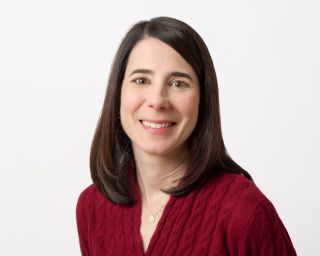
Annemarie Bridy is Senior Copyright Counsel at Google and an Affiliate Fellow at the Yale Law School Information Society Project. Prior to joining Google, Dr. Bridy was the Allan G. Shepard Professor of Law at the University of Idaho, where she taught a range of courses in intellectual property and information law. She has testified before Congress on the safe harbor provisions of the Digital Millennium Copyright Act and is widely published on topics relating to Internet governance, platform liability and responsibility for third-party speech, and online anti-piracy enforcement. She has also published on the implications of artificial intelligence for copyright authorship and the intersection of copyright law and literary theory. Dr. Bridy has been interviewed on IP and tech law topics for national media outlets including The LA Times, Marketplace Tech Report, Bloomberg News, Ars Technica, The Verge, and The ABA Journal.
As a member of the full-time faculty at the University of Idaho, Dr. Bridy received the Mid-Career Faculty Award and was a five-time winner of the Alumni Award for Faculty Excellence. She was active in the leadership of both the Intellectual Property Law Section and the Internet and Computer Law Section of the Association of American Law Schools. She also served as the faculty advisor for the Student Bar Association’s Intellectual Property Law Society and the Idaho Law Review’s Annual Symposium.
Before entering academia, Dr. Bridy was a litigation associate at Montgomery, McCracken, Walker & Rhoads, LLP in Philadelphia. She clerked for the Honorable William H. Yohn, Jr. of the United States District Court for the Eastern District of Pennsylvania and the Honorable Dolores K. Sloviter of the United States Court of Appeals for the Third Circuit.
Dr. Bridy holds a BA, summa cum laude and with distinction, from Boston University; an MA and a PhD from the University of California, Irvine; and a JD, magna cum laude, from the Temple University James E. Beasley School of Law, where she was a member of the Temple Law Review. At the University of California, Dr. Bridy was a Humanities Predoctoral Fellow and an Andrew W. Mellon Research Fellow in the Humanities. She is a member of the Epsilon of Massachusetts Chapter of the Phi Beta Kappa honor society.
Google has filed an amicus brief in support of Cox in Cox Communications v. Sony Music Entertainment.
Photo provided
Xiyin Tang
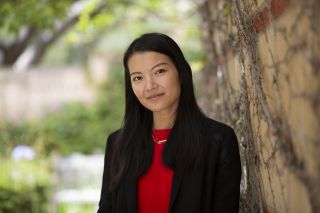
Xiyin Tang is a Professor of Law at UCLA School of Law. She has previously served as a lead counsel for Facebook and an associate at Mayer Brown LLP and Skadden Arps Slate Meagher & Flom LLP, where she worked on a variety of transactional and litigation matters in the technology, media, and entertainment sectors.
Tang’s research focuses on the roles that technological evolution and new modes of dissemination play in the law of intellectual property. Her current research addresses how IP laws should respond to artificial intelligence and its effect on creative labor markets. Past writings have addressed the use of both public and private mechanisms—in the form of class action litigation and confidential contracts, respectively—as responses to mass digitization and, with it, potentially, mass infringement. Her publications have appeared in the Columbia Law Review, Michigan Law Review, NYU Law Review, and Yale Law Journal, among others. She is also a co-author of sections of the leading copyright law treatise Nimmer on Copyright.
Tang received her B.A. in English Literature and Creative Writing summa cum laude from Columbia University. She received her J.D. from Yale Law School, where she received the Neale M. Albert Prize for Best Paper on Art Law and twice received the Nathan Burkan Memorial Prize for Best Paper on Copyright Law. During law school, Tang served as Editor-in-Chief of the Yale Journal of Law and Technology.
Photo provided
Alfred C. Yen
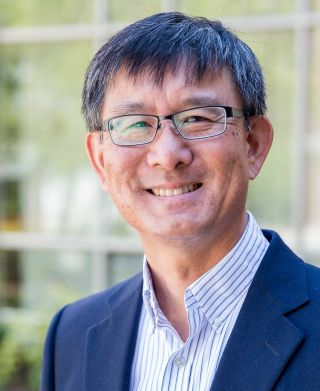
Alfred C. Yen is Professor of Law and Dean’s Distinguished Scholar at Boston College Law School, where he was Associate Dean of Academic Affairs from 2002-2002 and Associate Dean of Faculty from 2015-2018. Professor Yen has also served as Visiting Professor of Law at Harvard Law School in the spring of 2025, Visiting Scholar at the University of Arizona since 2012 and as an Invited Professor at the University of Paris 1 Pantheon-Sorbonne from 2018-2024. From 2020-2024, he was the Editor-in-Chief of the Journal of the Copyright Society, a leading peer-reviewed journal. Professor Yen teaches in the areas of intellectual property, torts, and sports law.
Professor Yen has authored numerous articles about copyright and trademark law, including the casebook Copyright Law: Essential Cases and Materials, Fifth Edition (forthcoming 2025, West Publishing), co-authored with Joseph Liu. His works include articles about secondary copyright liability, aesthetic theory and copyright, the proper use of forensic musicology, the First Amendment and copyright, the regulation of college sports recruiting, and waivers of tort liability in the context of sports. He is presently counsel of record for amici curiae Intellectual Property Law Scholars in the case of Cox v. Sony before the United States Supreme Court.
Professor Yen helped found the Conference of Asian Pacific American Law Faculty and served as Chair of the AALS Section on Minority Groups and the AALS Section on Law and Sports. Professor Yen holds degrees from Stanford University and Harvard Law School.
Photo provided
Pamela Samuelson
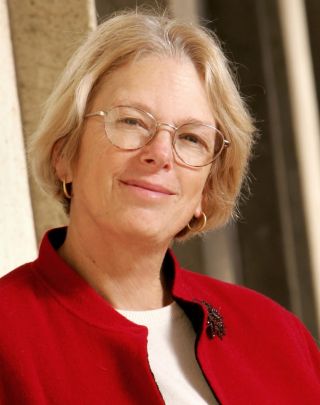
Pamela Samuelson is the Richard M. Sherman Distinguished Professor of Law and Information at the University of California, Berkeley. She is recognized as a pioneer in digital copyright law, intellectual property, cyberlaw and information policy. Since 1996, she has held a joint appointment at Berkeley Law School and UC Berkeley’s School of Information. Samuelson is a director of the internationally-renowned Berkeley Center for Law & Technology. She is co-founder and chair of the board of Authors Alliance, a nonprofit organization that promotes the public interest in access to knowledge. She also serves on the board of directors of the Electronic Frontier Foundation, as well as on the advisory boards for the Electronic Privacy Information Center, the Center for Democracy & Technology, and Public Knowledge.
Samuelson began her legal career as an associate with Willkie Farr & Gallagher in New York. She began her career as a legal academic at the University of Pittsburgh School of Law, from which she visited at Columbia, Cornell, and Emory Law Schools. While on the Berkeley faculty, she has been a distinguished visiting professor at University of Toronto Law School as well as a visiting professor at the University of Melbourne and Harvard Law Schools. She was named an honorary professor at the University of Amsterdam in 2002.
Samuelson has written and published extensively in the areas of copyright, software protection and cyberlaw. Her recent publications include: Generative AI Meets Copyright, 381 Science 158 (2023); Discovering the Impact of eBay on Copyright Injunctions Through Empirical Evidence, 64 Wm. & Mary L. Rev. 1447 (2023) (with Matthew Sag); Withholding Injunctions in Copyright Cases: The Impact of eBay, 63 Wm. & Mary L. Rev. (2022); Interfaces and Interoperability After Google v. Oracle, 100 Texas L. Rev. 1 (2021) (with Mark A. Lemley); The Disgorgement Remedy of Design Patent Law, 108 Calif. L. Rev. 183 (2020) (with Mark P. Gergen); Staking the Boundaries of Software Copyrights in the Shadow of Patents, 71 Fla. L. Rev. (2019); Saving Software’s Fair Use Future, 31 Harv. J. L. & Tech. 535 (2018) (with Clark D. Asay); Strategies for Discerning the Boundaries of Copyrights and Utility Patents, 92 Notre Dame L. Rev. 1493 (2017); Functionality and Expression in Computer Programs, 31 Berkeley Tech. L. J. 1215 (2016); Functional Compilations, 54 Houston L. Rev. 321 (2016); Reconceptualizing Copyright’s Merger Doctrine, 63 J. Cop. Soc’y 417 (2016); Notice Failures Arising From Copyright’s Duration Rules, 96 B. U. L. Rev. 667 (2016); Freedom to Tinker, 17 Theor’l Inquir. L. 563 (2016).
Since 1990, Samuelson has been a contributing editor of Communications of the ACM, a computing professionals journal respected for its coverage of existing and emerging technologies, for which she has written more than seventy “Legally Speaking” columns. From 1997 through 2002, Samuelson was a fellow of the John D. & Catherine T. MacArthur Foundation. She is also a Fellow of the Association of Computing Machinery. The Anita Borg Institute honored Samuelson with its Women of Vision Award for Social Impact in 2005, and the public interest organization Public Knowledge awarded her its IP3 Award for her contributions to Internet law and policy in October 2010.
Photo provided
Ben Sheffner
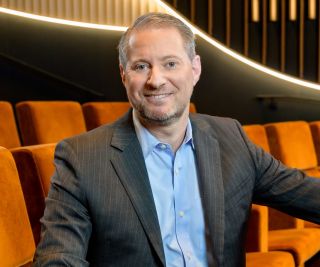
Ben Sheffner is Senior Vice President & Associate General Counsel, Law & Policy, at the Motion Picture Association, where he specializes in copyright, First Amendment, and other legal and policy issues of importance to the MPA’s member studios. With dual appointments in the MPA’s Legal and Government Affairs departments, Ben works closely with attorneys and policy advocates internally and at the MPA’s member studios to formulate and implement strategies to create a favorable environment for the industry to thrive, both economically and creatively. Among his several roles, Ben frequently represents MPA before federal and state government officials and entities; manages the MPA’s amicus brief program; and serves as counsel to the Title Registration Bureau.
Prior to joining the MPA in 2011, Ben held in-house legal positions at NBCUniversal and Twentieth Century Fox, and worked as an associate in the Century City office of O’Melveny & Myers LLP, where he litigated copyright and other cases for major movie studios, television networks, and record labels. In 2008, Ben served as Special Counsel on Senator John McCain’s presidential campaign, where, among other responsibilities, he handled the campaign’s copyright, trademark, and other intellectual property issues. Ben served as a law clerk for the Hon. M. Margaret McKeown on the US Court of Appeals for the Ninth Circuit from 2000-2001.
Ben serves as an Adviser to the American Law Institute’s Restatement of the Law, Copyright project and has previously held positions as a Trustee of the Copyright Society of the USA as well as the Los Angeles Copyright Society, and as a participant on the Uniform Law Commission committee that drafted a uniform anti-SLAPP statute.
Prior to attending law school, Ben worked as a political reporter in Washington, DC for the Cook Political Report and Roll Call newspaper, where he covered congressional elections, the term limits movement, campaign finance reform, and various other issues related to Congress’ internal politics and administration. Ben received an A.B. from Harvard College and a J.D. from the University of California, Berkeley School of Law (Boalt Hall).
Photo provided
Cathay Y. N. Smith
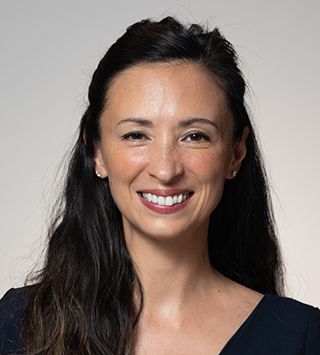
Cathay Y. N. Smith joined the Chicago-Kent College of Law faculty in fall 2024 from the University of Montana Blewett School of Law. She has also taught at the University of Denver Sturm College of Law, New York Law School’s London Program, and was a visiting academic and research fellow at the Oxford Intellectual Property Research Centre (OIPRC) at the University of Oxford.
Smith’s research focuses on copyright law and free speech in contemporary culture and the art world. She teaches copyright law, property law, and art and cultural property law courses.
Smith currently serves as co-director of Chicago-Kent’s Intellectual Property Law Program. Her past leadership experiences include serving as co-acting dean at Montana Law, and as the 2022 chair and 2021 chair-elect of the Association of American Law Schools Section on Intellectual Property.
Prior to entering academia, Professor Smith was an associate in the trademark and copyright group at Katten in Chicago where she represented multinational technology, fashion, and entertainment and media corporations. She’s admitted to the Bar in Illinois, Colorado, United States District Court for the Northern District of Illinois, U.S. Court of Appeals for the Federal Circuit, U.S. Court of Appeals for the Third Circuit, and U.S. Court of Appeals for the Ninth Circuit.
Thanks to our Platinum Sponsor:

